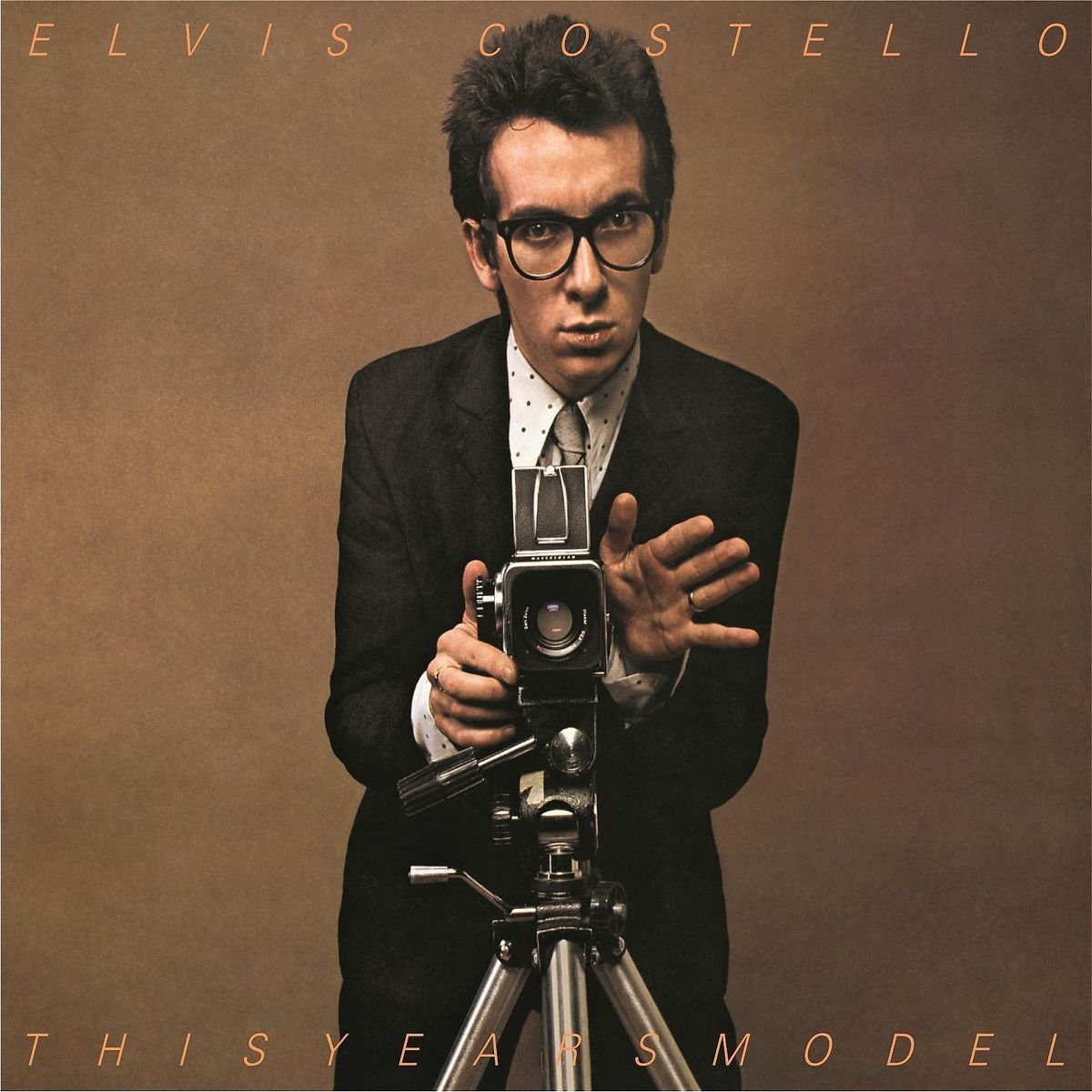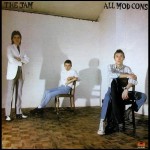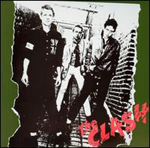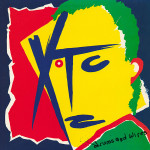Elvis Costello : This Year’s Model

This Year’s Model, Elvis Costello‘s second album, is the first record of his on which he was backed by The Attractions. However, curiously, it wouldn’t be until 1979’s Armed Forces that The Attractions would have their name on the front of the LP. Though this was just the beginning of a long partnership—one that might not have been cemented just yet—The Attractions were, largely, what made the difference between Costello’s debut, My Aim Is True, and This Year’s Model. While Clover, Costello’s band on True, was a solid but otherwise unremarkable group (who later became The News, as in Huey Lewis and), The Attractions took over with a fury and energy that Costello’s vicious rants desperately needed. As it has been said before, on My Aim is True had the punk spirit, but This Year’s Model was what punk was supposed to sound like.
From the opening lines of “No Action” on, Costello and The Attractions begin a dizzying whirlwind ride through a dozen high-energy songs that all but find the band stumbling out of control. “I don’t wanna kiss you/I don’t wanna touch,” Costello sneers, contradicting the adolescent theme of desire with his own overwhelming feelings of repulsion. Just under two minutes, the song is everything punk was meant to be—snotty, loud and sassy, culminating in Costello’s cry of “every time I hold you, I just wanna put you down.”
The next two tracks, “This Year’s Girl” and “The Beat,” although slower than the careening opener, still retain that punk abrasiveness and unpredictability. In the former, Costello’s scratchy guitar gets mixed up with an almost 1950s-style old rock ‘n’ roll melody, though the latter is more reggae influenced, Steve Nieve’s organ taking center stage. It’s not until “Pump It Up” that the frenzied adrenaline rush returns, however. Seen as both a song about the dangers of excess and, uh, pumping oneself up, both seem appropriate in the context of the lyrics:
Down in the pleasure center
hell-bent or heaven sent
listen to the propaganda
listen to the latest slander
there’s nothing underhand
that she wouldn’t understand
Driven by Bruce Thomas’ funky bass and a collapsing, descending melody, “Pump It Up” is one of a few songs that’s meant to be cranked up when it comes on the radio, and howled along to out of key. It’s just that goddamn fun and Costello still plays it on tour, many decades later.
The pace slows with “Little Triggers,” a ballad that, though slower in pace, contains some of the most pointed lyrical barbs: “little triggers you pull with your tongue/little triggers/I don’t want to be hung up/strung up/when you don’t call up.” “You Belong to Me” is a reckless three-chord punk song with some of The Attraction’s catchiest hooks of all time, with more lyrics of teenage lust, though following track “Hand in Hand” seems to be the pinnacle of Costello’s bitterness—and more double entendres—as he sings “If I’m gonna go down, you’re gonna come with me.”
Along with “Pump It Up,” dub-punk single “(I Don’t Want to Go to) Chelsea” began a continuous run of 8 top 30 singles in the UK. Reverting to a reggae style first suggested in “Watching the Detectives,” “Chelsea” is somewhat more abrasive and jagged, playing a faster, more raw combination of punk and reggae, coming closer to The Clash’s island-infused anthems. The next three songs, “Living in Paradise,” “Lipstick Vogue” and “Lip Service,” all continue with The Attractions’ manic energy and Costello’s songcraft, but the most intriguing song of the bunch is closer “Night Rally,” originally removed from the US version of the album for its controversial nazi imagery:
Everybody’s singing with their hand on their heart
About deeds done in the darkest hours
That’s just the sort of catchy little melody
To get you singing in the showers
As the song comes to a close, a bizarre caterwauling noise begins to well up in the back ground, to the point that it gets kind of disturbing, though the song cuts off abruptly at the end. The song was added to the reissued versions of the album, though the Americans who got the album in 1978 seem to have missed out.
“Radio, Radio,” a song not originally included on the album, was a stand-alone single that preceded the album’s release, but was later added to Rykodisc’s and Rhino’s reissuing of the album. A staunchly anti-corporate, yet intriguingly catchy tune, “Radio” is, today, one of Costello’s best known songs, though was not as well-received by the suits at the time. With lines like “they don’t give you any choice because they think that it’s treason,” it made broadcasters in the United States nervous. In fact, Costello was a musical guest on Saturday Night Live in 1977, slated to play “Less Than Zero,” a single from My Aim Is True. But after a few bars, Costello said to the audience, “excuse me, but there’s no reason why we should be playing this song,” then burst into “Radio, Radio,” which promptly got him banned from the show for 12 years. Now that’s punk.
On Armed Forces, Costello’s third studio album, The Attractions got top billing, as they eventually did on the reissues of This Year’s Model, though they truly earn it here. They are this album, turning what could have continued as pub rock into something far more dangerous and uncontrollable. This is punk rock at its most fun and most creative.
Similar Albums/Albums Influenced:
 The Jam – All Mod Cons
The Jam – All Mod Cons
 The Clash – The Clash
The Clash – The Clash
 XTC – Drums and Wires
XTC – Drums and Wires
Jeff Terich is the founder and editor of Treble. He's been writing about music for 20 years and has been published at American Songwriter, Bandcamp Daily, Reverb, Spin, Stereogum, uDiscoverMusic, VinylMePlease and some others that he's forgetting right now. He's still not tired of it.

